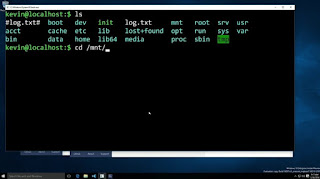Facebook: "our goal is to connect the world" - "TechnoTron"
FACEBOOK, SOCIAL NETWORKS, INTERNET
We have put our free basic services available to 500 million people worldwide and the results are encouraging: almost seven million people who were not connected now are. Nine of 10 people in the world live in areas with connections through 2 Gor 3 G networks, but just a little more than one-third of the world's population has internet access. These data tell us that, for many, connectivity barriers are social and economic. Many people simply cannot afford access to data, especially those who are at the base of the economic pyramid; and some of those who could affordit do not know why you would want to access the internet.
If we can find ways to offer free access to basic services such as messaging, Wikipedia and search engines, this will enable this population to come into contact with the network and thus understands why it is valuable to them. This is why we have released Internet.org. With this application, people can navigate a series of health, local information, and employment-related services free of charge. We hope that,offering basic services for free, more people connect and so we can help them discover valuable aspects that have not used otherwise.
If we can find ways to offer free access to basic services such as messaging, Wikipedia and search engines, this will enable this population to come into contact with the network and thus understands why it is valuable to them. This is why we have released Internet.org. With this application, people can navigate a series of health, local information, and employment-related services free of charge. We hope that,offering basic services for free, more people connect and so we can help them discover valuable aspects that have not used otherwise.
In January, we took our first step to accelerate the growth of the internet in Latin America with the launch of a series of free basic services through Internet.org in Colombia, including the site health information 1doc3, AccuWeather, AgroNet (agricultural information platform) and Wikipedia. We did this in conjunction with the Government of President Santos and with our allies of Tigo.
In the last 10 years Facebook has been adapted to the behavior of people, from being a service based on desktop to a mobile company. For example, we know that in many parts of Latin America people still depend on simple mobile phones, so we designed a light version of our application so that he could run on these devices. Another good example is Paraguay, where we launched Facebook in guarani, an indigenous language which is still spoken by a significant percentage of the population.
For the majority of people just you are connecting to the internet, Facebook is oneof the first experiences that will have in this medium. That is simply because your friends and family are already on the platform and thus it is easier for them to connect and share. Facebook not only facilitates these kinds of connections, but is more and more used by Governments to come into contact with its citizens.
Your privacy is our highest priority. Give control to people about what they share is something that is at the heart of what we do. We think the privacy since we started to build a product until it is released. We know that people will only rely on Facebook where we do a good job protecting your information.
One of the impressive things about Latin America is the speed with which Facebook is transforming the lives of people. Latin Americans, out going and social by nature, Facebook have assimilated to the point that, in some parts, the service is synonymous with internet. It is not a coincidence that the Spanish outside the second language in which runs the platform and in just a few years Brazil became one of the largest on the site communities, with 92 million people using the service each month, most from their mobile devices. From the city of Mexico, to Buenos Aires, we have seen that the majority of people are online via Facebook sharing important information for them, informing it and doing business.
Internet connects us with our friends and communities, but is also the basis of the knowledge economy and a way to offer basic financial services and health, as well as educational tools. When everyone can participate in the global knowledge economy, all of us can benefit from the ideas and productivity that they contribute to the world.
FACEBOOK, SOCIAL NETWORKS, INTERNET

Comments
Post a Comment